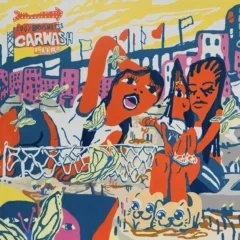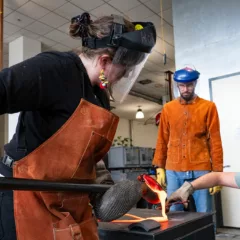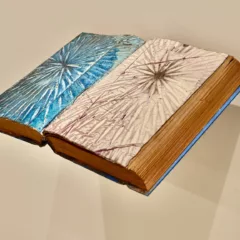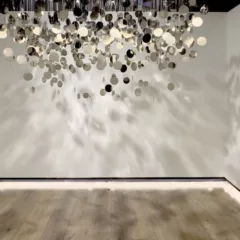Lisa Yuskavage spoke at Tyler School of Art, Temple University on Thursday night. A Philadelphian now living in Brooklyn, Yuskavage graduated from Tyler in 1984 and went on to receive an M.F.A. from Yale. She is now represented by the David Zwirner Galler, in New York, and her painting career in the last decade has been meteoric. It was quite wonderful of her to return to her roots and to speak with a large audience of Tyler students.
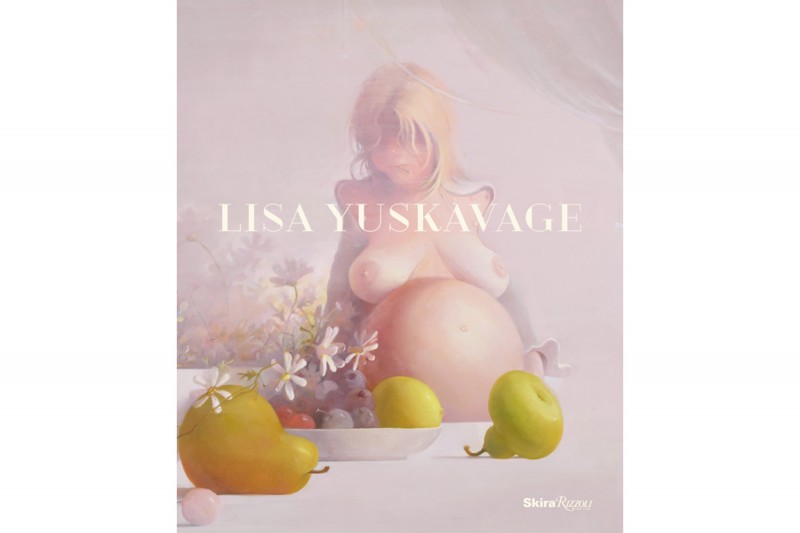
The format of the evening was unique. A handful of Tyler students were selected to question Yuskavage about any one of her works, each of which were displayed to the audience. The result was an interesting, free-floating discussion about her development as an artist, and about life.
Instinct, inspiration, and a new book
Much of Yuskavage’s work has featured boldly sexualized women and often has been characterized as feminist and anti-misogynistic. But when asked about this, she remarked: “I am an artist, not a politician.” She went on to describe her work in large part as an expression of her instincts and her experience. Of course her instincts are imaginative, erotic, and irreverent, and she is uninhibited and unafraid to push boundaries. It is no surprise, therefore, that she has an inspiring effect upon art students, particularly those who experience internal or external pressure to conform. It should also be said that Yuskavage obviously is a master of technique and a student of art.
Yuskavage can seem disarmingly down-to-earth at one moment, and intriguingly ambiguous the next. At one point during the evening she casually remarked: “Sometimes love is a killer for art.” And she spoke about the benefits of resistance. And I thought: these are musings that all artists need to ponder.
Yuskavage also introduced her new book, The Brood: Paintings 1991-2015, which has just been published by Skira Rizzoli in association with the Rose Art Museum at Brandeis University, where her work is now being exhibited. This impressive (and expensive) survey of Yuskavage’s work over the last 24 years includes essays by Christopher Bedford, Suzanne Hudson, Catherine Lord, Siddhartha Mukherjee, and a conversation between the artist and Kathy Siegel.


